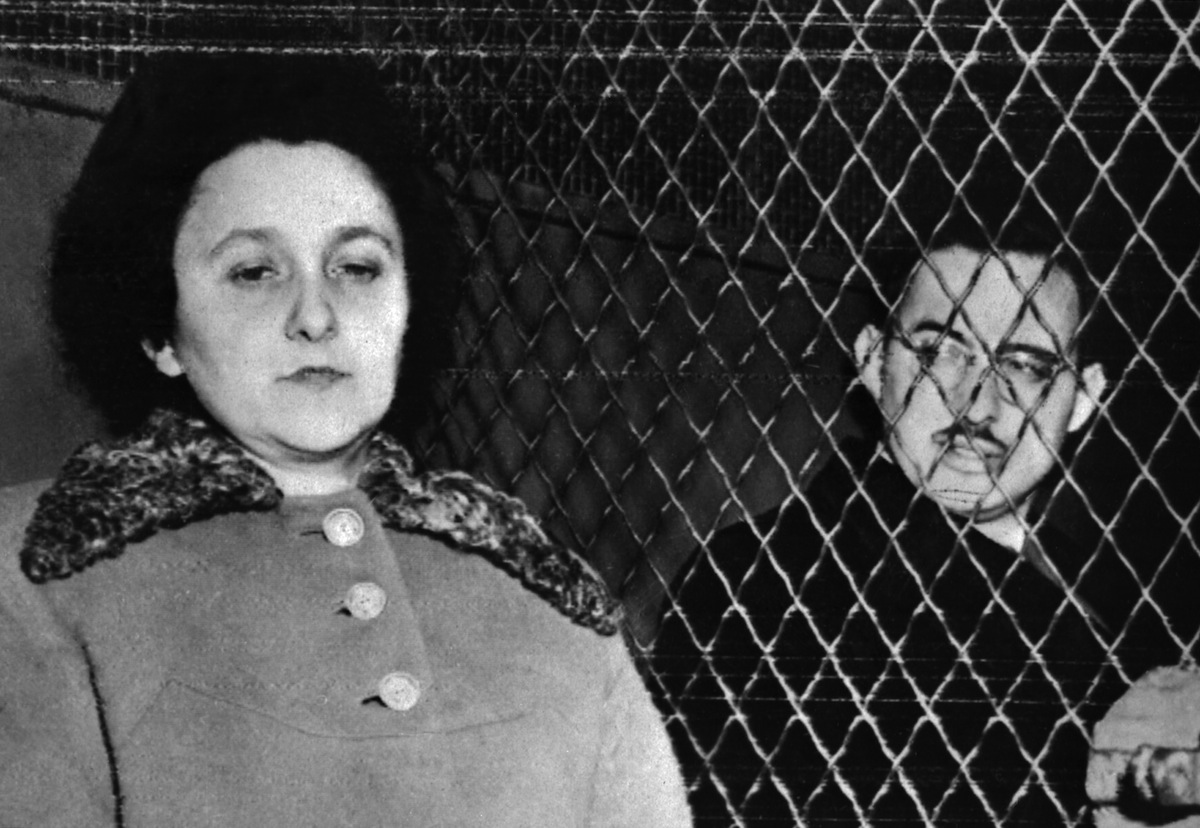
Long after their execution, questions lingered over the extent of Ethel and Julius Rosenberg’s actual spy work.
When the New York couple stood trial, beginning on this day, Mar. 6, in 1951, they faced charges of selling nuclear secrets to the Russians during World War II. When they died by electric chair at Sing Sing two years later, they became the first civilians in U.S. history to be executed for wartime spying.
The judge who sentenced them to death argued that no lesser punishment fit the seriousness of their crime: handing over classified documents and sketches of atomic weapons that helped the Soviets match America’s nuclear advances. The information had come from Ethel’s brother, an Army sergeant who worked on the Manhattan Project. He was sentenced to only 15 years in prison after giving testimony that helped convict Ethel and Julius.
“Plain, deliberate, contemplated murder is dwarfed in magnitude by comparison with the crime you have committed,” the judge told the Rosenbergs, according to TIME’s 1951 report. “… who knows but that millions more of innocent people may pay the price of your treason.”
However, many found the judge’s ruling unnecessarily draconian. Picketers staged a 24-hour-a-day vigil outside the White House, according to TIME, and some of the era’s most prominent figures spoke out against the death sentence.
“Do not let this crime against humanity take place,” Pablo Picasso urged American political leaders, per TIME.
“You are afraid of the shadow of your own bomb,” wrote Jean-Paul Sartre.
Pope Pius XII made a formal plea to President Eisenhower, asking him to pardon the pair. Eisenhower was unmoved.
Only years later did the truth emerge that Ethel, at least, had not actively taken part in espionage. The evidence that sealed her fate — her brother’s testimony that she had typed the classified information her husband handed over to the Russians — was false. Her brother, David Greenglass, admitted in a 2001 interview that he had lied to protect himself. Asked whether he was haunted by the betrayal, according to the BBC, he said, “Every time I am haunted by it, my wife says ‘Look, we are still alive.’ ”
Some historians have argued that the value of the classified information itself may have been exaggerated during the trial. Daniel Patrick Moynihan, the author of Secrecy: The American Experience, posits that the Soviets were five years away from matching America’s nuclear capabilities even without the Rosenbergs’ help. With it, they got there in four years. “That was the edge that espionage gave them: a year’s worth, no more,” Moynihan writes.
A federal judge responded to a similar argument in 1967, when it came up in a co-conspirator’s appeal, by countering that leaked information didn’t have to be useful to constitute treason. Spies were spies, the judge argued, whether or not they had “achieved perfection” in wartime espionage.
Read TIME’s 1951 report on the Rosenbergs’ trial, here in the TIME archives: Worse Than Murder
More Must-Reads from TIME
- Cybersecurity Experts Are Sounding the Alarm on DOGE
- Meet the 2025 Women of the Year
- The Harsh Truth About Disability Inclusion
- Why Do More Young Adults Have Cancer?
- Colman Domingo Leads With Radical Love
- How to Get Better at Doing Things Alone
- Michelle Zauner Stares Down the Darkness
Contact us at letters@time.com